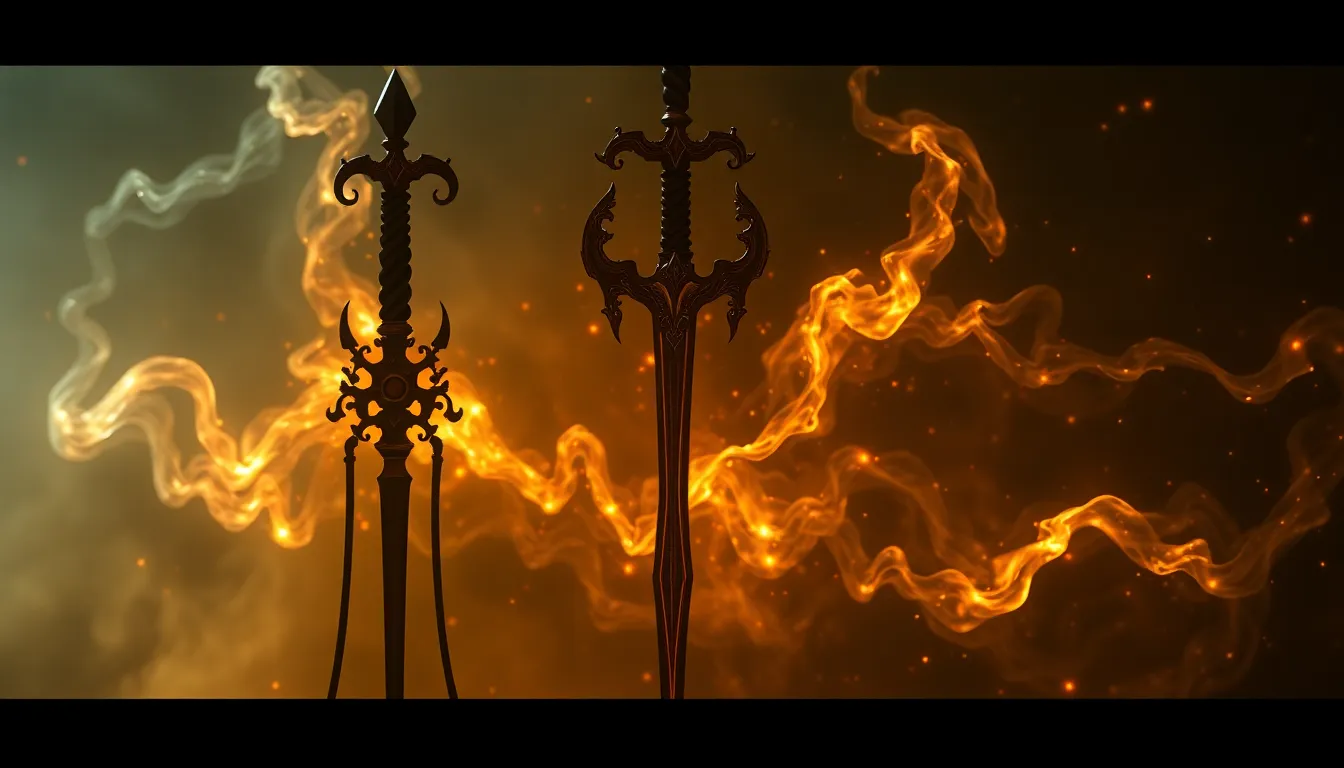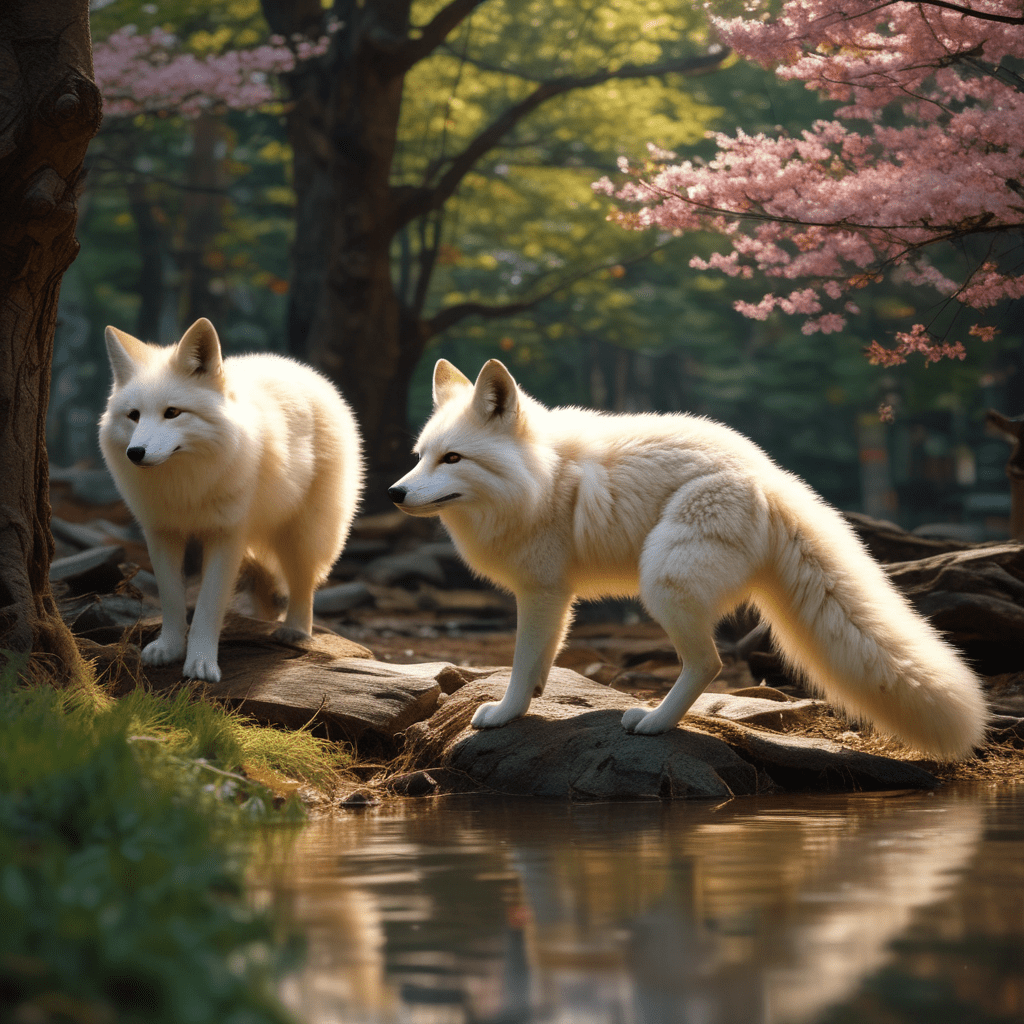The Cosmic Legacy: How Creation Myths Influence Our Future
I. Introduction
Creation myths are traditional narratives that describe how the world and humanity came into existence. These stories often provide insight into the values, beliefs, and practices of the cultures from which they emerge. The importance of these myths in human culture cannot be overstated; they serve as foundational tales that help societies understand their place in the cosmos and the nature of existence itself.
This article aims to explore the role of creation myths throughout human history, examine key themes within these narratives, analyze major myths from various cultures, and discuss their psychological, ethical, and scientific implications. Ultimately, we will consider how these ancient stories can inform our future.
II. The Role of Creation Myths in Human History
Creation myths have been a fundamental part of human culture for thousands of years. They provide a historical context that reflects the beliefs and experiences of societies at different stages of development.
Across the globe, creation stories are found in virtually every culture, illustrating a universal human desire to understand the origins of life and the universe. These myths often serve as a means of explaining existence, addressing profound questions such as:
- Why are we here?
- What is the purpose of life?
- How did the universe come into being?
III. Key Themes in Creation Myths
Creation myths commonly explore several key themes:
A. Origin of the universe and life
Many creation myths detail the processes through which the universe and life were formed, often involving deities or cosmic forces.
B. The relationship between humanity and the divine
These narratives frequently describe the interactions between gods and humans, highlighting themes of favoritism, punishment, and the responsibilities of humanity to their creators.
C. Concepts of chaos and order in creation narratives
Creation stories often begin with chaos or void, which is then transformed into order, reflecting humanity’s struggle to make sense of the world.
IV. Comparative Analysis of Creation Myths
To appreciate the diversity and commonality of creation myths, we can examine a few prominent examples:
A. Overview of major creation myths from different cultures
1. Judeo-Christian creation
The Genesis account describes God creating the world in six days, culminating in the creation of humanity in His image.
2. Hindu cosmology
In Hinduism, the universe is cyclic, with creation and destruction occurring through the actions of deities like Brahma, Vishnu, and Shiva.
3. Indigenous creation stories
Many Indigenous cultures have rich creation narratives that often emphasize harmony with nature and respect for the Earth.
B. Common threads and divergent themes
While the specifics of these myths vary, common threads include the themes of creation from chaos, the involvement of divine beings, and the moral or ethical lessons imparted through these narratives.
V. Creation Myths and Their Psychological Impact
Creation myths play a significant role in shaping individual and collective identity. They provide a sense of belonging and context for personal and cultural narratives.
A. The role of myth in shaping identity
Myths give people a framework within which they can understand their lives and their place in the world.
B. Psychological theories on the significance of creation stories
Psychologists suggest that these narratives fulfill essential human needs for meaning and understanding, particularly in times of crisis or uncertainty.
C. Creation myths and their influence on societal values
These stories often embody the ethical principles and cultural values of a society, influencing behaviors and societal norms.
VI. Modern Interpretations and Adaptations of Creation Myths
Creation myths continue to resonate in modern literature and art, influencing contemporary storytelling.
A. Creation myths in literature and art
Many authors and artists draw inspiration from creation myths, reinterpreting them to address modern themes of identity, existence, and morality.
B. The relevance of ancient myths in contemporary society
These narratives remain relevant as they echo the universal questions and struggles of humanity.
C. Adaptations in popular culture (films, books, etc.)
Modern adaptations often take the form of films and novels, where ancient myths are reimagined to reflect current social issues and innovations.
VII. The Influence of Creation Myths on Science and Cosmology
Creation myths and scientific inquiry have often intersected, influencing early scientific thought and continuing to shape discussions about our universe.
A. The relationship between myth and scientific inquiry
While science seeks empirical evidence and logical reasoning, myths offer symbolic understandings of existence.
B. How creation myths have shaped early scientific thought
Many early scientists were influenced by the prevailing creation myths of their cultures, which guided their explorations and hypotheses.
C. Current debates on mythology and scientific understanding of the universe
There remains a tension between mythological explanations and scientific theories, with each offering different insights into the nature of reality.
VIII. The Ethical Implications of Creation Myths
Creation myths often carry significant ethical implications that can guide human behavior and societal norms.
A. Creation myths and environmental stewardship
Many myths emphasize humanity’s responsibility to care for the Earth, promoting sustainability and environmental awareness.
B. Social justice themes in creation narratives
These stories often highlight themes of justice, equity, and the rights of individuals, informing contemporary discussions on social justice.
C. The role of myths in guiding ethical behavior and decision-making
Creation myths can serve as moral compasses, providing frameworks for ethical decision-making in personal and societal contexts.
IX. Creation Myths as a Framework for the Future
Looking forward, creation myths have the potential to inform and inspire future societal structures and innovations.
A. How myths can inform future societal structures
As societies evolve, the values embedded in creation myths can help shape governance, justice systems, and community practices.
B. The potential for creation myths to inspire innovation and change
By reinterpreting these narratives, we can find new ways to approach modern challenges, fostering creativity and innovation.
C. The role of storytelling in shaping future aspirations and goals
Storytelling, rooted in these ancient myths, can guide our aspirations, encouraging individuals and societies to envision a better future.
X. Conclusion
Creation myths are not merely relics of the past; they are vital narratives that continue to shape our understanding of existence and inform our future. Their enduring impact on identity, ethical behavior, and societal values underscores their importance in contemporary discourse.
As we face complex global challenges, embracing creation myths can provide guidance and inspiration for a sustainable future, reminding us of our shared humanity and the universal quest for meaning.



